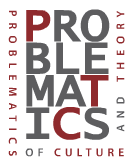

The “Problematics of Culture and Theory” Seminar, held by the School of English of Aristotle University, will be hosting an online talk by Aristides Hatzis (Professor of Philosophy of Law & Theory of Institutions at the University of Athens) on Friday, 18 March, 2:00pm. The title of his paper is:
`“Am I not a Greek?” The Emergence of the Ideal Type of “Modern Greek”
from Thomas Hope's Anastasius (1819) to Percy Shelley’s Hellas (1822).’
The `Problematics of Culture and Theory’ talks are open to the academic staff, postgraduate and undergraduate students of the School of English as well to the wider public.
The talk will take place through Zoom, and the relevant link will be sent by email (one day before the talk) to those who submit the registration form.
Please find below the abstract of the paper and a short bio of the speaker.
Dr Ε. Botonaki and Dr L. Roupakia
Problematics Seminar Coordinators
Abstract
In the early August of 1821, Percy Shelley left Mary Shelley in Pisa, to visit Byron in Ravenna. Shelley's enthusiasm for the Greek Revolution met a very cynical reaction by Byron, who urged him to read Anastasius, or, Memoirs of a Greek; written at the close of the Eighteenth Century, a novel written by an anonymous writer and published in late 1819 (in the second edition, some months later, its author was revealed as Thomas Hope, a 50-year-old Dutch-English merchant). Anastasius was an instant European bestseller; Metternich had already read it and used it against the Greeks in Laibach. Anastasius is a story of a ruthless Greek adventurer and mercenary who becomes a Muslim, and he does not develop a strong national identity like the Greeks who were already fighting against the Turks, since the early March of 1821. In his debates with Byron over the Greeks, Shelley emphasized that the picture of the Greeks in Anastasius was outdated. There was a new class of Greeks who were ready to bring back glory to the cradle of civilization and the most important of them was his 'friend', Prince Alexander Mavrocordato. This lecture examines the relationship between the three (Percy and Mary Shelley with Alexander Mavrocordato), the evolution of Percy's ambivalent attitude towards the Greek Prince, Mary Shelley's pivotal role and, most importantly, it will try to assess the influence of this relationship to the image of the Greek Revolution in Europe and the image of Britain in Greece.
Author Bio
Aristides Hatzis is a Professor of Philosophy of Law & Theory of Institutions at the University of Athens (Ph.D. University of Chicago), the Director of Research at the Center for Liberal Studies-Athens and a Fellow of the Institute for Research in Economics and Fiscal Issues-Paris. He was a member of the National Committee for the Celebration for the Bicentennial of the Greek Revolution (1821-2021). His book The Noblest Cause: The 1821 Greek War of Independence will be published in the United States in 2022. His op-eds have been published by the New York Times, the Financial Times, the Wall Street Journal, the Washington Post, the CNBC and he has given interviews to major international media outlets.